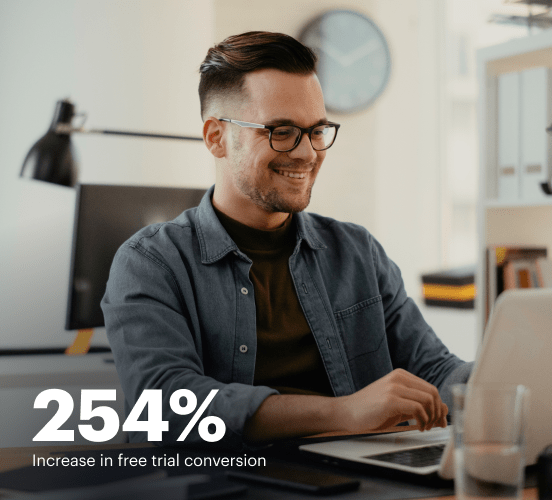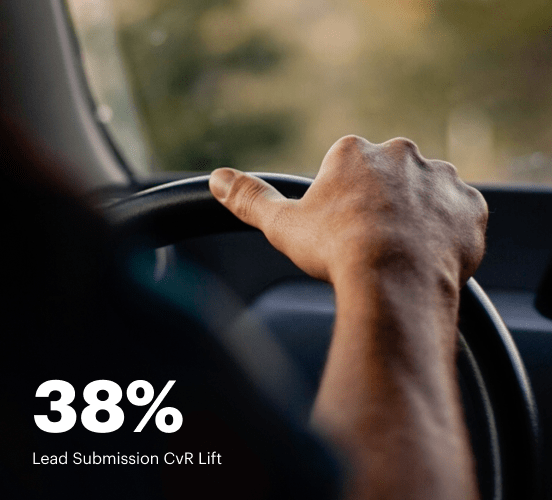Webflow vs. Instapage: choose the right tool to elevate your website creation experience
Transitioning from Webflow to Instapage allows you to deliver ad-to-page experiences to visitors. With an intuitive drag-and-drop builder, experimentation, optimization, reporting, and growth tools — you have everything you need to create ad-relevant landing pages that convert.
Get startedSee how Instapage stacks up against the competition
| Feature | Instapage | Other builders |
| Drag-and-Drop Tools | ||
| Conversion-optimized templates | ||
| Manual and AI-powered A/B Tests | ||
| AI content suggestions | ||
| Popups and sticky bars | ||
| Canvas and grid blocks | ||
| Reusable and global elements | ||
| Form and popup builders | ||
| Built-in Heatmaps | ||
| Central analytics dashboard | ||
| Ad-to-page personalization and collections | ||
| Contacts, lists, and email | ||
| Dedicated, full-service CRO experts | ||
| Enterprise-ready platform |
Leading the way in building high-performing landing pages





Why Instapage is the smarter choice for your campaigns
Get everything you need to build, scale, and optimize high-converting landing pages—without coding.
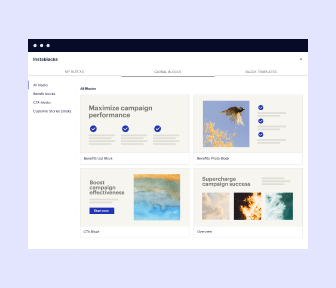
Easier page building without coding
Instapage offers a flexible and seamless page creation experience with a library of 500+ conversion-focused layouts, Instablocks®, a drag-and-drop builder, and AI content generation. With technologies like Thor Render Engine®, you can create on-brand, mobile-responsive landing pages that load quickly and start converting during initial visitor clicks.
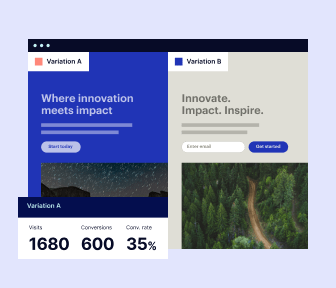
More insights — better results
Instapage lets you see in detail how each landing page experience and variation is performing so you can make targeted changes that boost page conversions. Use heatmaps for a better understanding of on-page activities, run A/B tests and AI-assisted experiments, and then track and evaluate results within robust analytics dashboards.
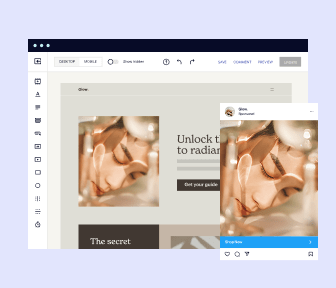
More personalized experiences
Instapage lets you quickly create high-performing landing pages tailored to each of your ad campaigns. Deliver personalized experiences for distinct audiences using dynamic text replacement. Effortlessly align specific advertisements to unique pages with AdMaps. Monitor audience-level metrics using our advanced data tools.
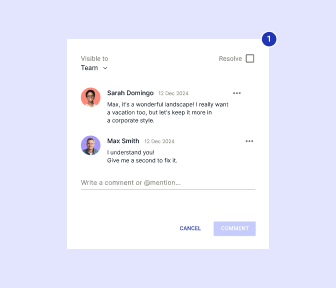
Built-in collaboration
Instapage collaboration capabilities bring your entire team together to speed up the process of landing page review, approval, and launch. No more frustrating and unnecessary revisions or edits scattered across emails. Provide instant feedback, conduct real-time page edits, and securely share your pages with outside stakeholders.
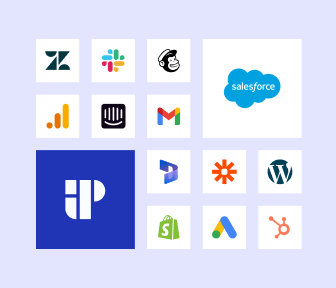
Free up time for your business
Invest time into business growth, not busy work. Launch landing pages faster with reusable forms and templates. Build once, reuse forever.
Explore all integrations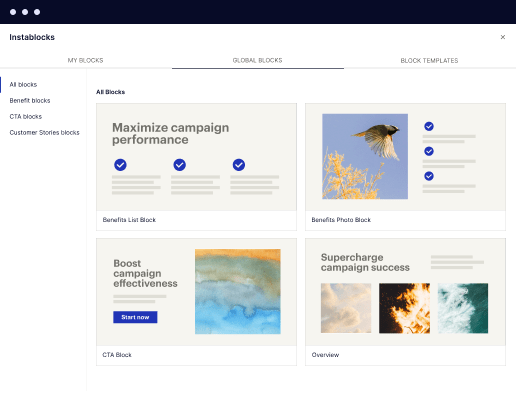
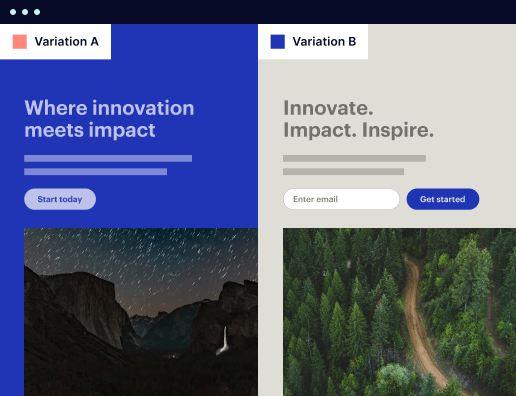
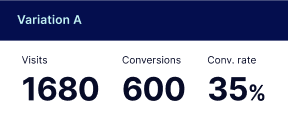
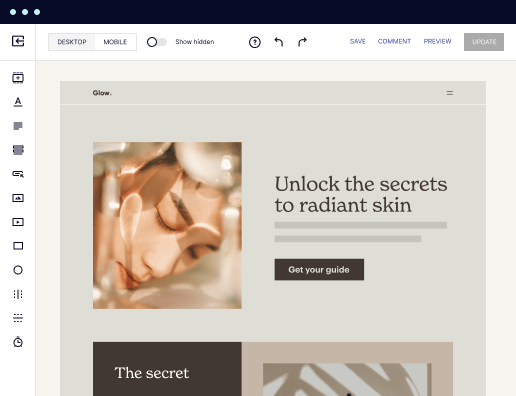

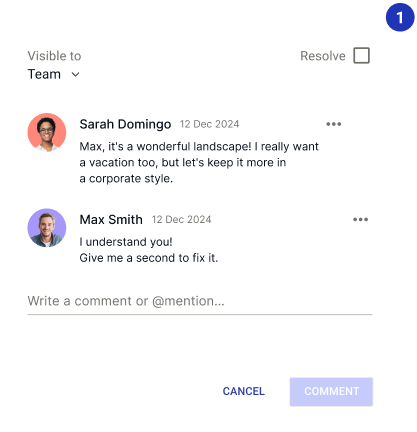
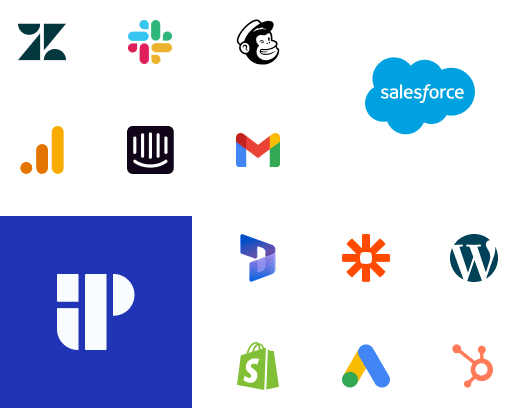
Easier page building without coding
Instapage offers a flexible and seamless page creation experience with a library of 500+ conversion-focused layouts, Instablocks®, a drag-and-drop builder, and AI content generation. With technologies like Thor Render Engine®, you can create on-brand, mobile-responsive landing pages that load quickly and start converting during initial visitor clicks.
More insights — better results
Instapage lets you see in detail how each landing page experience and variation is performing so you can make targeted changes that boost page conversions. Use heatmaps for a better understanding of on-page activities, run A/B tests and AI-assisted experiments, and then track and evaluate results within robust analytics dashboards.
More personalized experiences
Instapage lets you quickly create high-performing landing pages tailored to each of your ad campaigns. Deliver personalized experiences for distinct audiences using dynamic text replacement. Effortlessly align specific advertisements to unique pages with AdMaps. Monitor audience-level metrics using our advanced data tools.
Built-in collaboration
Instapage collaboration capabilities bring your entire team together to speed up the process of landing page review, approval, and launch. No more frustrating and unnecessary revisions or edits scattered across emails. Provide instant feedback, conduct real-time page edits, and securely share your pages with outside stakeholders.
Free up time for your business
Invest time into business growth, not busy work. Launch landing pages faster with reusable forms and templates. Build once, reuse forever.
Explore all integrationsGet started with Instapage in a few steps
-
Create your Instapage account
Start with Instapage by signing up via Google or your email. You'll get access to a free 14-day trial to discover Instapage capabilities. Feel free to cancel anytime during the 14-day trial if you decide that our product is not suitable for your business. -
Build and personalize your page
Create your first landing page from scratch or choose a template from 500+ customizable layouts. Use the drag-and-drop builder to add page elements, fonts, and backgrounds, refine content with AI, or add custom HTML, Javascript, and CSS. -
Review and make edits
Collaborate on page designs and streamline review processes. Invite your team members and stakeholders to review, edit, and provide feedback on your landing page. Collaborate knowing your page is confidential and only accessible to authorized users. -
Publish and track page performance
Publish your page to a domain or custom URL. Connect your pages to the ads you've created and track page performance within the analytics dashboard, run A/B tests and AI experiments, analyze results, and continuously optimize your landing page to maintain high conversions.
The Ultimate Face-Off: Instapage and Webflow in Digital Marketing
Choosing the right landing page builder can significantly influence your marketing success. In this article, we will provide a thorough comparison between Instapage and Webflow, exploring how each platform caters to marketers' needs. Understanding the capabilities, strengths, and limitations of these tools is essential for making informed decisions in your digital strategy. As we break down the features, usability, and pricing, you’ll gain insights into which platform could be the best fit for enhancing your landing page experiences. Ultimately, the goal is to empower marketers to reduce costs, grow conversions, and create compelling landing pages that foster brand trust and customer loyalty.
Introducing the Contenders: Webflow and Instapage
Webflow is a popular web design tool that blends design and development, allowing users to create complex, visually appealing websites without extensive coding knowledge. While it's renowned for its versatility, it may not specifically cater to the needs of marketers looking to optimize landing pages. On the other hand, Instapage is laser-focused on landing page creation and optimization. It offers tools and features that empower marketers to easily design, launch, and optimize tailored landing pages that can significantly increase conversion rates. Each platform has its unique strengths and serves different user needs, making this comparison crucial for marketers aiming to choose wisely.
Round 1 – User Experience and Accessibility
Webflow: A Designer's Playground
Webflow offers a robust user interface that appeals heavily to designers, providing a visual canvas for building websites. However, this can lead to a steeper learning curve for those who are not familiar with design concepts. It seamlessly integrates design flexibility with a CMS, enabling users to tweak layouts extensively, build responsive sites, and even add animations. The downside, though, is that marketers may find themselves needing to invest time learning the intricacies of the platform instead of focusing on creating effective landing pages. This could detract from achieving optimal marketing results, especially for teams that need to move quickly.
Instapage: Built for Marketers
Instapage, on the other hand, is designed with marketers in mind. It streamlines the process of creating landing pages, allowing users to choose from various templates and customize elements without the need for coding skills. The drag-and-drop interface simplifies the creation process, making it ideal for teams aiming for efficiency. Instapage also supports A/B testing directly within its platform, allowing users to optimize landing page performance without needing extra tools. This marketer-friendly design means that both novice and experienced marketers can easily create high-conversion pages without facing roadblocks commonly associated with technical complexities.
Round 2 – Speed and Customization Capabilities
When evaluating the performance and speed of Webflow and Instapage, both platforms present considerable potential for creating optimized landing pages. However, Instapage takes the lead in this round. Its focus on landing pages means that it is optimized for fast loading times, crucial for improving user experience and conversion rates. Marketers can expect quick rendering speeds, making it easier to keep users engaged. Conversely, while Webflow allows customization down to minute details, it can be resource-intensive. For users prioritizing conversions and speed, Instapage’s efficiency shines through.
Integrations and Compatibility
- Instapage seamlessly integrates with major email marketing tools like Mailchimp and HubSpot.
- Webflow allows integrations with various third-party apps such as Shopify and Zapier.
- Instapage connects with analytics tools providing insights on user interaction.
- Webflow can be paired with design tools like Figma and Adobe for enhanced functionality.
- Instapage's integrations facilitate better CRM systems.
- Webflow's flexibility allows for eCommerce functionalities and user interactions.
Analytics and Performance Insights
A critical element for any marketing effort is the ability to analyze and optimize performance. Instapage excels with its comprehensive analytics dashboard, offering detailed metrics that allow marketers to track conversions, visitor behavior, and overall campaign performance. Users can easily identify which elements of their landing pages are performing well and which need improvement. On the contrary, while Webflow offers analytics capabilities, they are generally more focused on web performance metrics rather than actionable marketing insights, which can leave marketers wanting more.
Moreover, loading speed is a pivotal aspect of user experience; even slight delays can lead to significant drops in conversion rates. Instapage’s infrastructure is designed specifically for agility, ensuring that landing pages load quickly. In contrast, users of Webflow might find their landing pages consuming more resources, which could lead to slower loading times if not optimized correctly. This is a vital consideration for marketers prioritizing conversion-driven design.
Round 4 – Support and Community Engagement
Customer Service and Support Availability
Both platforms offer customer support, but the responsiveness and thoroughness can vary. Instapage provides robust customer service with live chat options, extensive documentation, and a responsive knowledge base. Marketers can get help quickly, minimizing downtime in their campaigns. Alternatively, Webflow's support is solid, with a variety of resources available, including a community forum; however, response times can be slower during peak hours. For marketers needing immediate assistance, Instapage often provides a better experience.
Community Resources and Engagement
The strength of a platform's community can significantly enhance a user's experience. Instapage fosters a vibrant community through forums, webinars, and tutorials, allowing users to learn from each other and from experts. Marketers can find valuable resources for improving their campaigns and maximizing the platform's features. Similarly, Webflow also boasts a comprehensive community, with plenty of resources available; however, it tends more towards design-centric discussions and might not focus as heavily on marketing-specific advice. Both platforms have their strong points, but Instapage's community aligns more closely with marketers' needs.
Round 5 – Pricing and Value for Your Money
Pricing is a crucial deciding factor for many. Instapage offers a clear pricing structure tailored to marketers, with plans that provide essential features focused on landing page creation and optimization. Free trials are available, allowing potential users to test the platform before making any commitments. This approach aids users in understanding exactly what they will be investing in. In contrast, Webflow also offers pricing plans but with additional costs tied to advanced features that may be beyond what most marketers need, making it a less focused solution for landing pages.
When evaluating what you get for your money, Instapage often provides better overall value concerning features specifically designed for marketing. While Webflow delivers impressive design capabilities, it may come at a higher cost for features that aren’t necessary for marketers focused solely on conversion rates. Understanding how each platform aligns with your marketing goals can lead to wiser investments.
The Winner: Which Tool Should You Choose?
Reviewing the critical insights from our analysis, it's clear that both Instapage and Webflow have their merits. For marketers who prioritize developing landing pages that drive conversions, Instapage emerges as the superior choice due to its user-friendly interface, optimization capabilities, and direct design for marketing needs. Conversely, Webflow appeals to designers and those seeking advanced control over site aesthetics. Ultimately, your choice depends on your specific priorities—whether that’s detailed design or focused marketing efforts.
In conclusion, selecting the right platform is pivotal for achieving your marketing goals. If reducing costs while enhancing conversions is your target, Instapage is tailored to fulfill those demands. Consider exploring the platform's features with a trial to discover how it can optimize your marketing campaigns. With hands-on experience, you can see firsthand the advantages it offers for driving your business forward.

